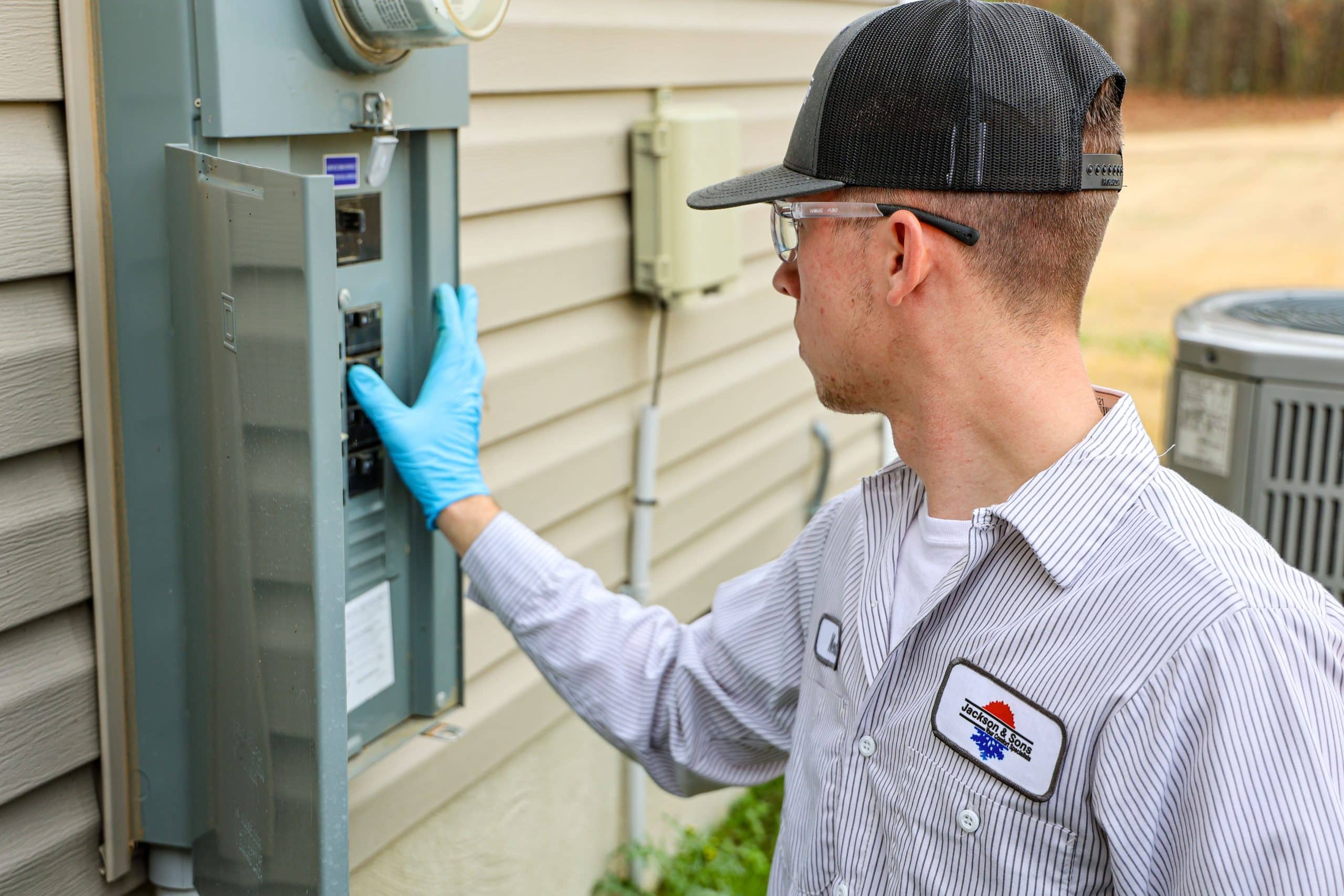
The power to run your HVAC system is controlled by dedicated circuit breakers in your home’s electrical system. Breakers automatically function to protect the electrical system and everything that’s connected to it from instances such as overloads, short circuits, and other malfunctions. A single breaker may control the flow of electricity to more than one room, as well as a variety of devices plugged into that particular circuit. Most of these breakers are installed in the main breaker panel of the house.
HVAC components, however, are an exception in that a unit draws so much electrical power that it typically requires a dedicated breaker and does not share that circuit with other devices. Read on to learn about instances where this is the case.
- The powerful motor in the central AC compressor draws very high current each time the unit cycles on. The compressor needs its own dedicated breaker to protect that specific circuit. Compressor circuit breakers are typically rated for higher voltage — typically 220 or 240 volts — as opposed to the standard 110 volts for most household circuits. This breaker is usually installed at the outdoor central AC unit instead of in the home’s inside main breaker panel. An overheating compressor due to excess wear, low refrigerant level, or continuous short cycling of the system, may be factors that trip the air-conditioner circuit breaker.
- Another breaker typically protects the main blower fan in the HVAC system’s indoor air handler. This dedicated breaker is usually in the home’s main breaker panel and not shared with any other circuits in the house. An aging fan motor wearing out may begin drawing excess power and eventually trip the breaker.
- If the home includes an electric furnace, that unit will also have its own dedicated breaker. Issues such as low airflow due to a clogged air filter, obstructed air vents in rooms, a failing blower motor, or internal electrical defects inside the unit may be the cause of breaker trips.
For more about the relationship between HVAC components and the circuit breaker that protects them, talk to the professionals at Jackson & Sons.